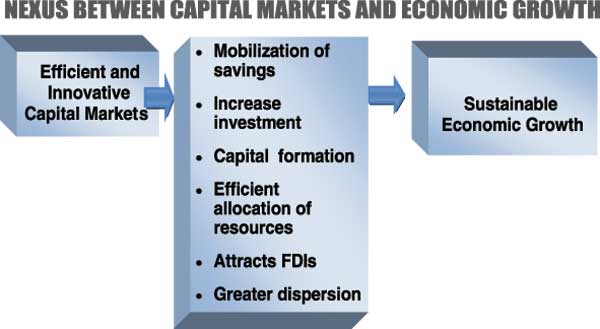01 Jul 2013 - {{hitsCtrl.values.hits}}
.jpg) A capital market is a significant aspect of every financial market. It is a market in which institutions and individuals trade financial securities. It comprises of the equity, bond, debt and derivative markets. A capital market comprises of both primary and secondary markets. A primary market is a market that issues new securities. Companies, governments and other groups obtain financing through debt or equity-based securities. A market where investors purchase securities or assets from other investors, rather than from issuing companies is identified as a secondary market.
A capital market is a significant aspect of every financial market. It is a market in which institutions and individuals trade financial securities. It comprises of the equity, bond, debt and derivative markets. A capital market comprises of both primary and secondary markets. A primary market is a market that issues new securities. Companies, governments and other groups obtain financing through debt or equity-based securities. A market where investors purchase securities or assets from other investors, rather than from issuing companies is identified as a secondary market.
26 Nov 2024 30 minute ago
26 Nov 2024 1 hours ago
26 Nov 2024 1 hours ago
26 Nov 2024 2 hours ago
26 Nov 2024 3 hours ago